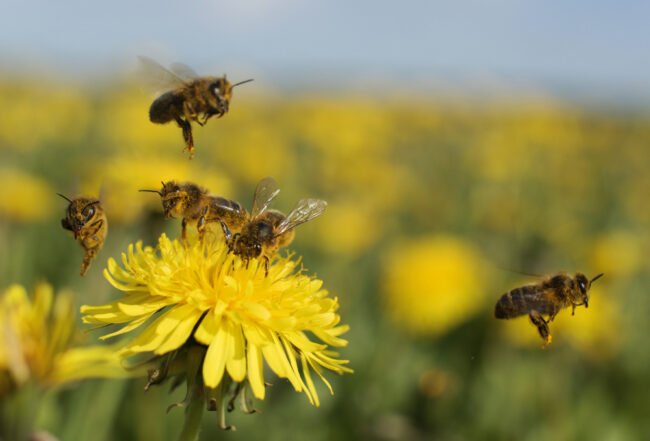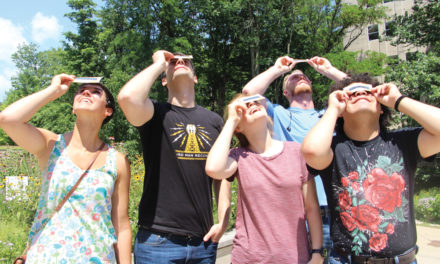
by SUSAN M. BRACKNEY
For years, governments and environmental groups have sounded the alarm regarding the demise of bee populations. And while honeybees aren’t native to North America, they pollinate more than 100 different crops, according to the U.S. Department of Agriculture. With that in mind, it may be hard to fathom that just last year the city of Fishers, Indiana, had banned the keeping of bees. Other municipalities have also considered bans. But now, outright bans on beekeeping are off the table in Indiana thanks to legislation that went into effect July 1.
“They added Chapter 28—Ordinances that Affect Agriculture—to an existing statute,” says John Schellenberger, Floyd County commissioner and vice president of The Beekeepers of Indiana (TBOI).
With 1,900-plus constituents, TBOI estimates its membership represents just 20% of the state’s beekeepers. In addition to 15 large-scale commercial beekeeping operations, Indiana has 32 beekeeping clubs for both amateurs and professionals.
Schellenberger worked with Sen. Ronald Grooms, R-Jeffersonville, and Rep. Ed Clere, R-New Albany, who crafted and shepherded Senate Bill 529 through the Statehouse. The bill prohibits counties, cities, towns, or townships from creating new anti-beekeeping regulations or enforcing existing ones.
Still, the new law doesn’t entirely hamstring local government bodies. “They cannot prohibit [beehives], but they can regulate the number of hives and their location,” Schellenberger explains. “So, you may have to have so many square feet per bee colony.”
Any regulations enacted must conform to Apiary Inspectors of America standards. “As far as placement, if you live in a subdivision, there might be regulations like you can’t have your bees right next to the sidewalk,” Schellenberger says. “They might have to be set back from property lines.”
The preservation of honeybees and other insect pollinators is critical for food security statewide—and worldwide, too. A 2018 report released by the Food and Agriculture Organization of the United Nations states, “Close to 75% of the world’s crops producing fruits and seeds for human consumption depend, at least in part, on pollinators for sustained production, yield and quality.”





